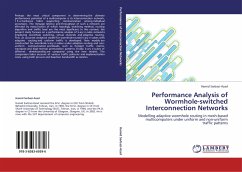In practice, switched Local Area Networks (LANs) designs, has, largely been based on heuristics; in many cases, no design is carried out; only network installation (network cabling and nodes placements). This often leads to LANs that are sluggish (large delays), and, that fail to satisfy the network users in terms of speed, when, a user s computer is in a communication session with other computers or host machines that are attached to the LAN or with switching devices that connect the LAN to wide area networks (WANs). Therefore, the need for deterministic guarantees on delays has led to the need for analytic and formal basis for designing switched LANs. This book provides a perspective for solving the switched LANs delay problem. Basic theoretical issues required for understanding the problem are discussed. The development of a maximum delay model of a packet switch, and, an algorithm that design engineers can use to generate optimum network designs in terms of installed network switches and attached hosts, while, respecting specified maximum delay constraints are explained. This book should be useful to computer network researchers and network design/installation professionals.
Bitte wählen Sie Ihr Anliegen aus.
Rechnungen
Retourenschein anfordern
Bestellstatus
Storno








